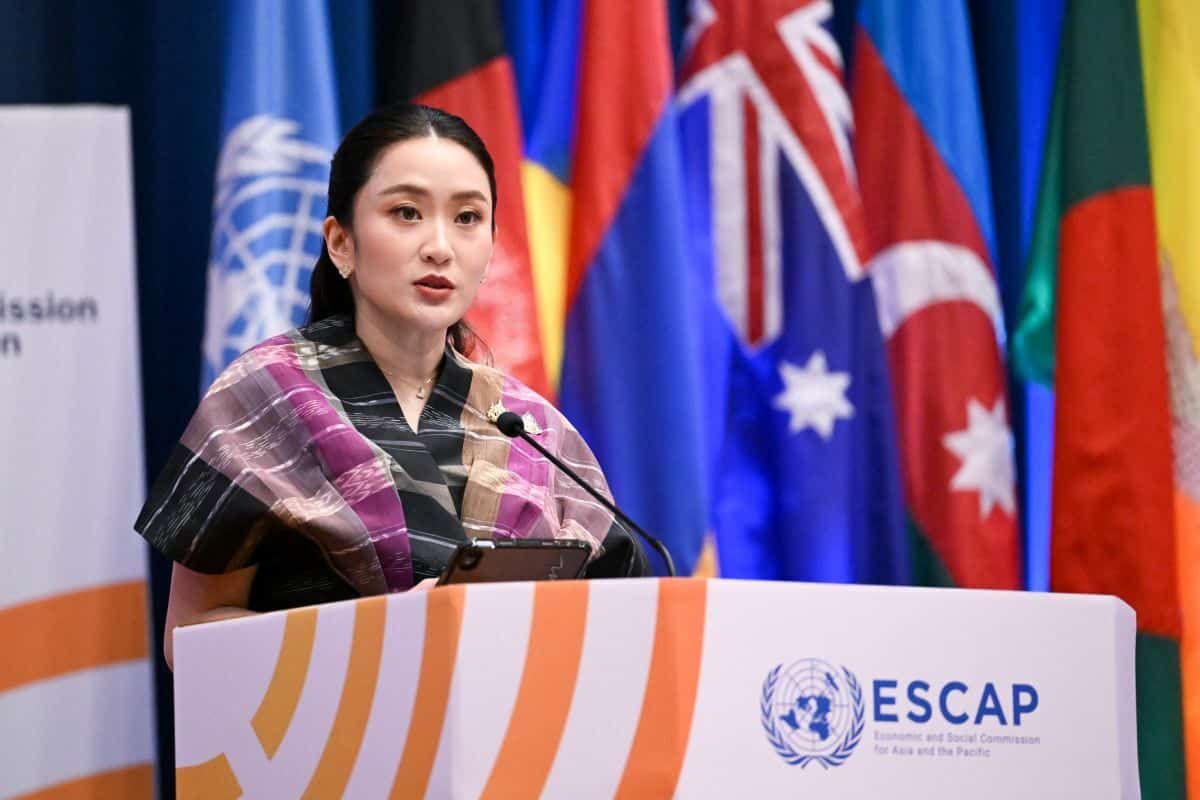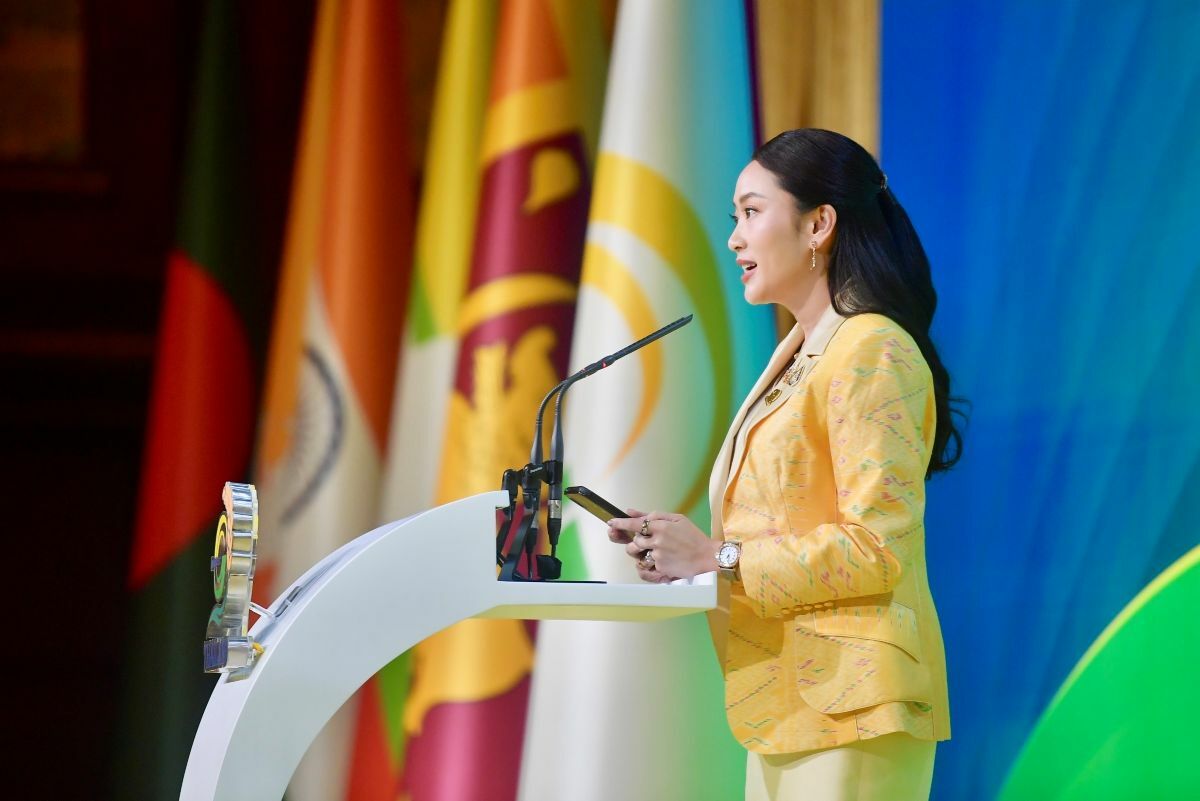Paetongtarn urges stronger regional ties to tackle shared troubles

Thailand Prime Minister Paetongtarn Shinawatra called for urgent cross-border cooperation to tackle the world’s shared challenges, from climate change to geopolitical tensions, during the 81st session of the Economic and Social Commission for Asia and the Pacific (ESCAP).
Speaking in the capital today, April 21, the Bangkok-born PM addressed ministers from across Asia and the Pacific, stressing that regional unity is key to addressing mounting threats like natural disasters, transnational crime, and political instability.
“These issues affect peace, stability, and development, they affect every one of us.”
The PM urged nations to work together across all levels.
Held under the theme Regional Cooperation for Resilient and Sustainable Urban Development, the ESCAP session runs from April 21 to 25 and focuses on advancing the UN’s Sustainable Development Goals (SDGs).
The 38 year old Thai premier emphasised the vital role of multilateral platforms such as the UN, ASEAN, BIMSTEC, and the Asia Cooperation Dialogue in helping countries build resilience and achieve inclusive, sustainable growth.
She also cited the recent 8.2-magnitude earthquake that struck Myanmar and impacted parts of Thailand as a stark reminder of the need for international aid and collective preparedness.
“Thailand remains committed to sharing its development strategies with allies and believes public-private partnerships are critical for advancing the SDGs.”

The country’s core strategy focuses on three areas: food security, soft power through the creative economy, and the green economy. Thailand aims to position itself as the kitchen of the world while reaching net-zero emissions by 2065, reported The Nation.
Currently ranked 45th globally in the SDG Index 2024, Thailand has made notable strides in health and education. However, gaps remain in areas like inequality, justice, and environmental sustainability.
In related news, Thailand’s 2024 power development plan (PDP) may undergo significant revisions to enhance the management of the nation’s long-term energy supply and bolster efforts against global warming.
This was suggested by Energy Ministry Permanent Secretary Prasert Sinsukprasertas after he highlighted the need for adaptation in response to evolving energy concerns.
Latest Thailand News
Follow The Thaiger on Google News:


























